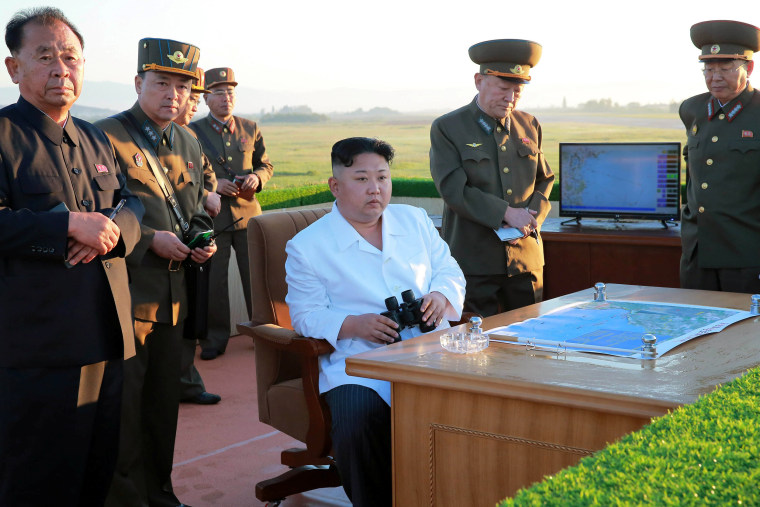MANILA, Philippines — Southeast Asia's top diplomats slammed North Korea with a sharp rebuke Saturday over its intercontinental ballistic missile tests and admonished Pyongyang to comply with its duty of helping avert conflicts as a member of Asia's biggest security forum.
The Association of Southeast Asian Nations foreign ministers, however, were split on an American proposal to suspend Pyongyang from the ASEAN Regional Forum, a 27-nation bloc that includes North Korea and its bitter adversaries the U.S., South Korea and Japan.
The ASEAN ministers reiterated in a joint statement their grave concerns over the escalation of tensions on the Korean Peninsula due to the North's two intercontinental ballistic missile tests last month, saying the launches threaten world stability.
The statement came before the United Nations Security Council imposed a round of new sanctions on North Korea in response to Pyongyang's ICBM tests.
The U.S.-drafted resolution bans North Korean exports of coal, iron, iron ore, lead, lead ore and seafood. It also prohibits countries from increasing the current numbers of North Korean laborers working abroad, bans new joint ventures with North Korea and any new investment in current joint ventures.
The unanimously adopted resolution adds nine individuals and four entities to the U.N. blacklist, including North Korea's primary foreign exchange bank, subjecting them to a global asset freeze and travel ban.
Related: North Korea Hits Out at U.S. Travel Ban
"The North Korean threat ... is rapidly growing more dangerous," U.S. Ambassador to the United Nations Nikki Haley told the U.N. Security Council after the 15-member body imposed the new sanctions.
The North's neighbors have been forced to grapple with its continued defiance to international calls for it to stand down on its missile tests and nuclear weapons program.
"These developments seriously threaten peace, security and stability in the region and the world," the Association of Southeast Asian Nations foreign ministers said in their statement. They urged the North to immediately and fully comply with its obligations under U.N. Security Council resolutions.
They also backed efforts to improve relations between the two Koreas and said their 10-nation bloc was ready "to play a constructive role in contributing to peace and stability" on the Korean Peninsula.
Related: North Korea Crisis: How Events Have Unfolded Under Trump
All the countries involved in the so-called six-party talks aimed at taming the North's nuclear ambitions belong to the ASEAN Regional Forum, but Philippine Department of Foreign Affairs spokesman Robespierre Bolivar said at a news conference Saturday that there was no plan for those nations to meet on the sidelines of the Manila meetings.
North Korea pulled out of the talks — which also include South Korea, the U.S., China, Japan and Russia — in 2009 to protest international condemnation of a long-range rocket launch.
Philippine Foreign Secretary Alan Peter Cayetano said the ministers were divided over a U.S. proposal to suspend the North from the ASEAN Regional Forum, which will hold its annual meeting on Monday.
North Korean Foreign Minister Ri Yong Ho will attend Monday's meeting. With the U.S., Japan and South Korea expected to push for stronger actions against the North, a verbal showdown looms.
"There were views that, 'How can we hear them out or confront them if they're not there?' But there's also a view that we should give them an ultimatum," Cayetano said late Friday after discussing the issue with other foreign ministers.
